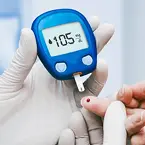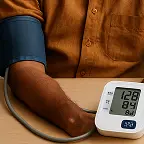Understand basics of obesity and
seek expert care.

So, why can it be so hard to lose weight? Because obesity is a disease, not a choice.1,3 Even when you try to eat healthy and stay active, it can be hard to sustain weight loss, making you feel like you are stuck in a cycle of trying to lose weight and gaining it back 1,2
Here are a few factors that might be affecting your weight loss efforts:

Biological resistance may result in increased hunger, feeling less full, and changes in metabolism—these processes can work against your weight loss efforts4

When you stay at a certain weight for a long time, your body can resist changing.4,7,18 This means when you start to lose weight, your body may start to burn fewer calories, so the work you are putting in is less efficient over time.18

Genetics, hormones, and environment all contribute to obesity.10 Research suggests that pharmacotherapy offers an additional option to help reduce body weight when lifestyle changes are insufficient.6
People with obesity are more likely to develop several serious health problems9, including:





With early medical support, you can take back control. Your doctor may help with a personalized care plan for the optimum health outcomes.
Consult an Apollo Doctor*

Doctors are trained to offer care with compassion and
without judgment. They'll work
with you to understand:
Begin Your Weight Loss Journey Today!
Consult an Apollo Doctor*
If you've ever thought
I want to feel
healthier
I have tried so
many diets
I want to talk to a doctor, but I don't know how
You are Ready to Take your first steps
You are Ready to Take your first steps
Let us help you navigate your options and support you with empathy and science.
Fill in your height and weight in order to receive your result.
*Please consult a registered medical practitioner before making any decisions based on your symptoms or BMI. This platform does not substitute professional medical advice. *
Obesity is primarily caused by a lack of physical activity or by unhealthy dietary habits.5,11
Overeating and low physical activity should be seen as symptoms of obesity, not its primary causes.5,12Factors, such as sleep deprivation, medications, stress, fatigue, and chronic pain, can significantly affect energy balance and contribute to weight gain. 5,13,14
Obesity is a lifestyle choice and not a disease.5
Obesity qualifies as a disease because it presents with identifiable signs and symptoms, leads to anatomical and functional changes in organs or body systems, contributes to significant morbidity and mortality, and often necessitates medical intervention for effective management.5
Since every person is unique, so should be their care plan! However, the most common treatment measures include




Do you have any questions?
Speak to Apollo Doctors** The link you clicked will take you to a site maintained by a third party (Apollo). Lilly does not control this site and is not responsible for the content of linked third-party websites. Lilly is not responsible for the Privacy Statement of any third-party sites. We encourage you to read the Privacy Statement of every website you visit. The healthcare professionals that are available on third party platform are independent and will exercise autonomous clinical judgement in evaluating any medical conditions and resulting care decisions, which may or may not include medication.
PP-MG-IN-0517
PP-MG-IN-0516